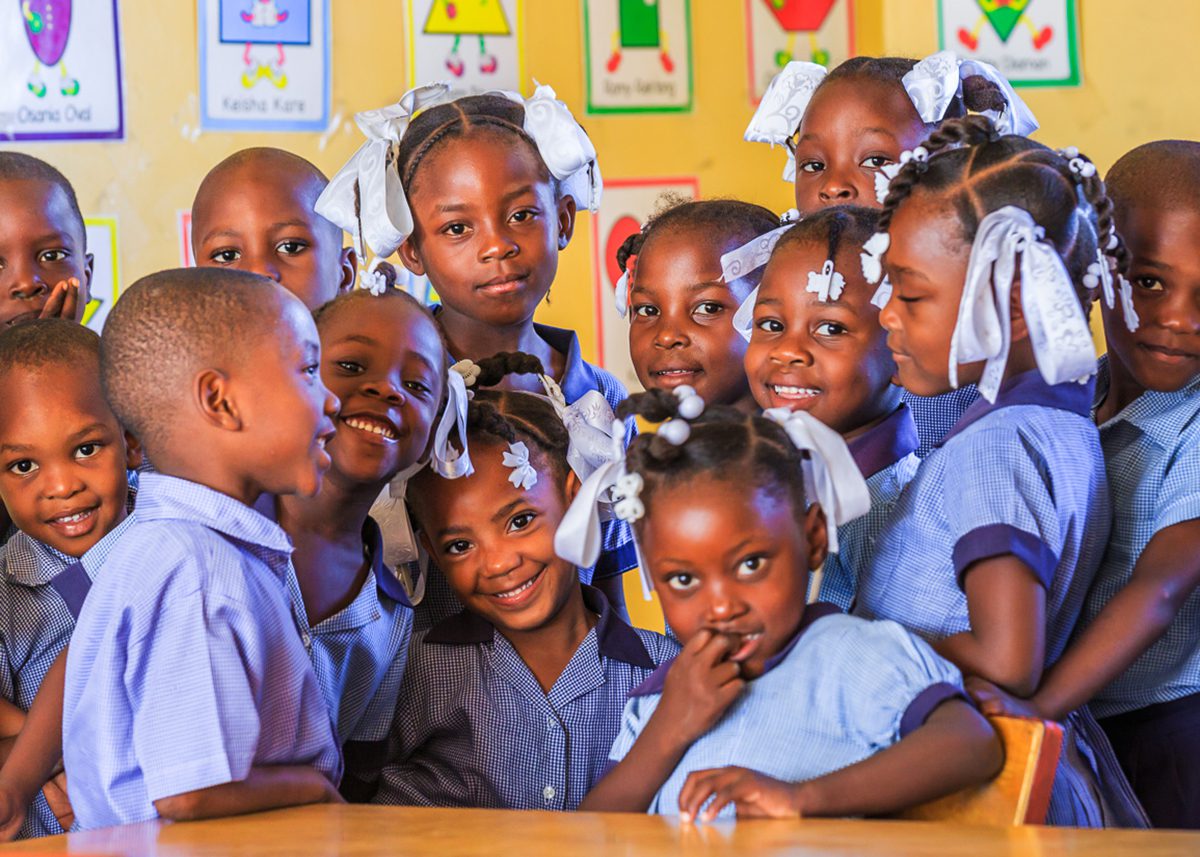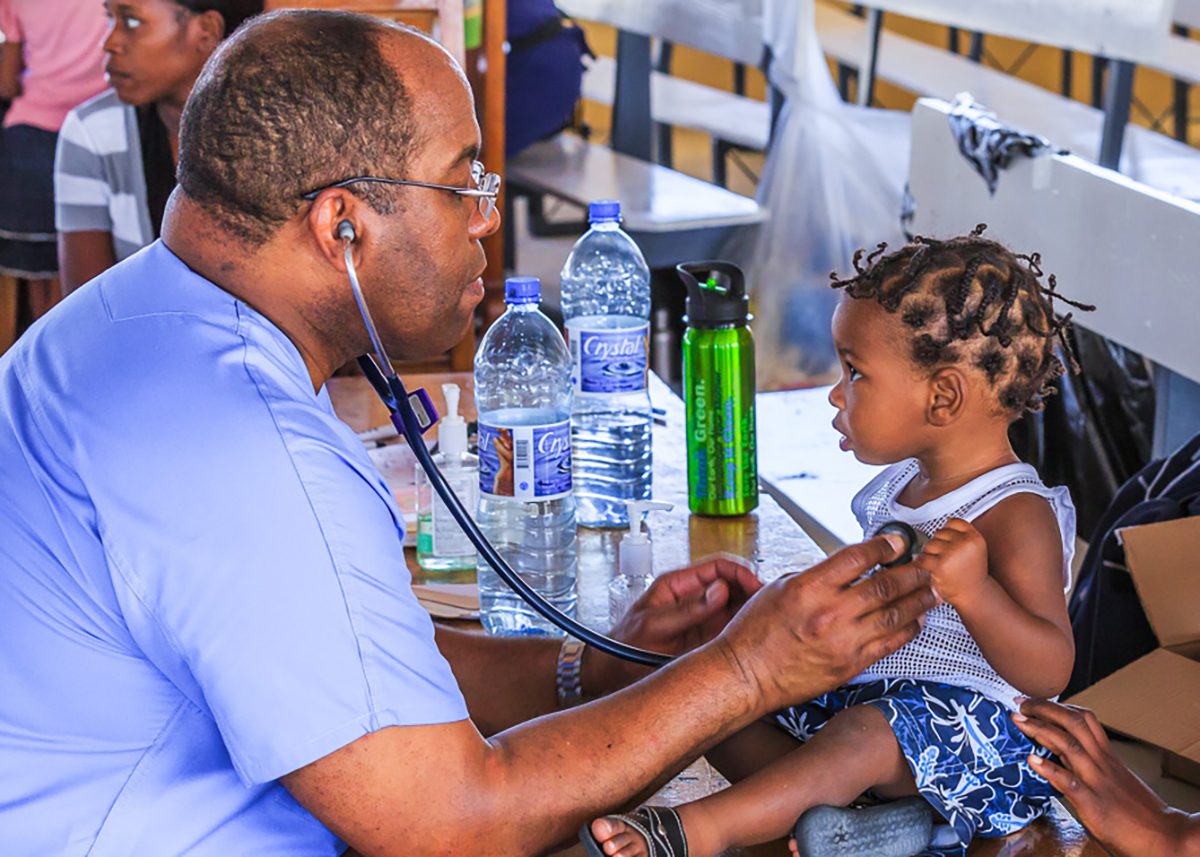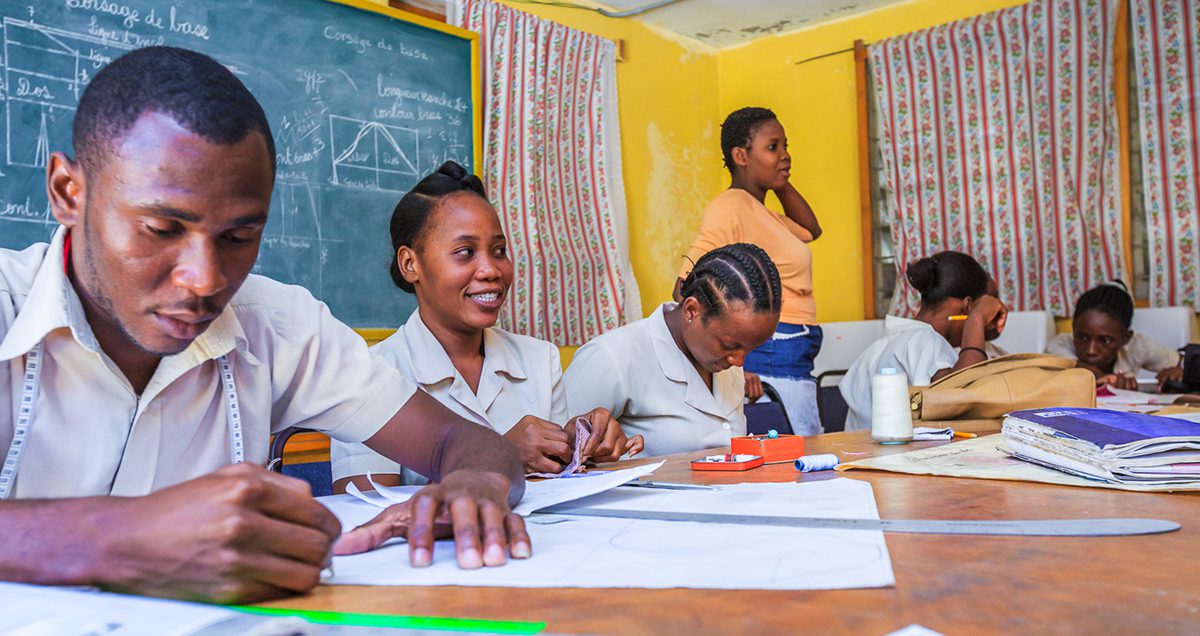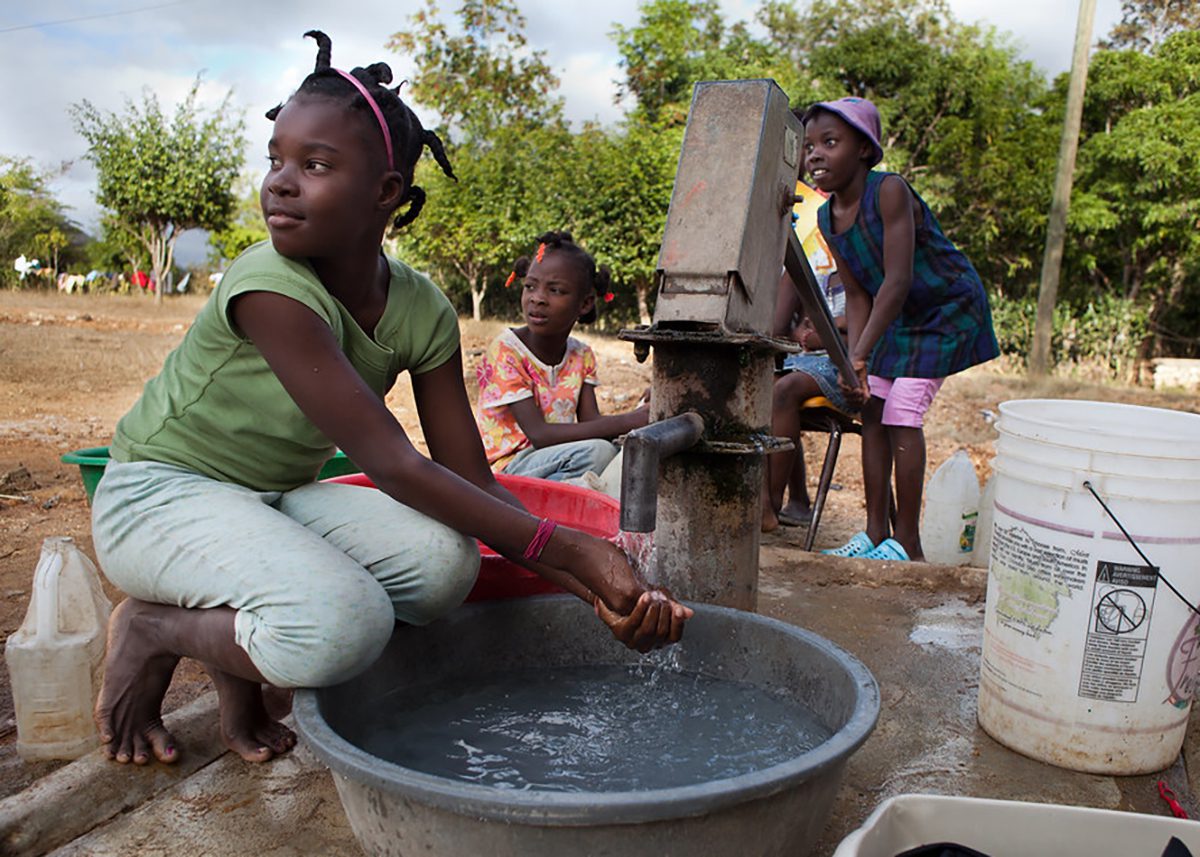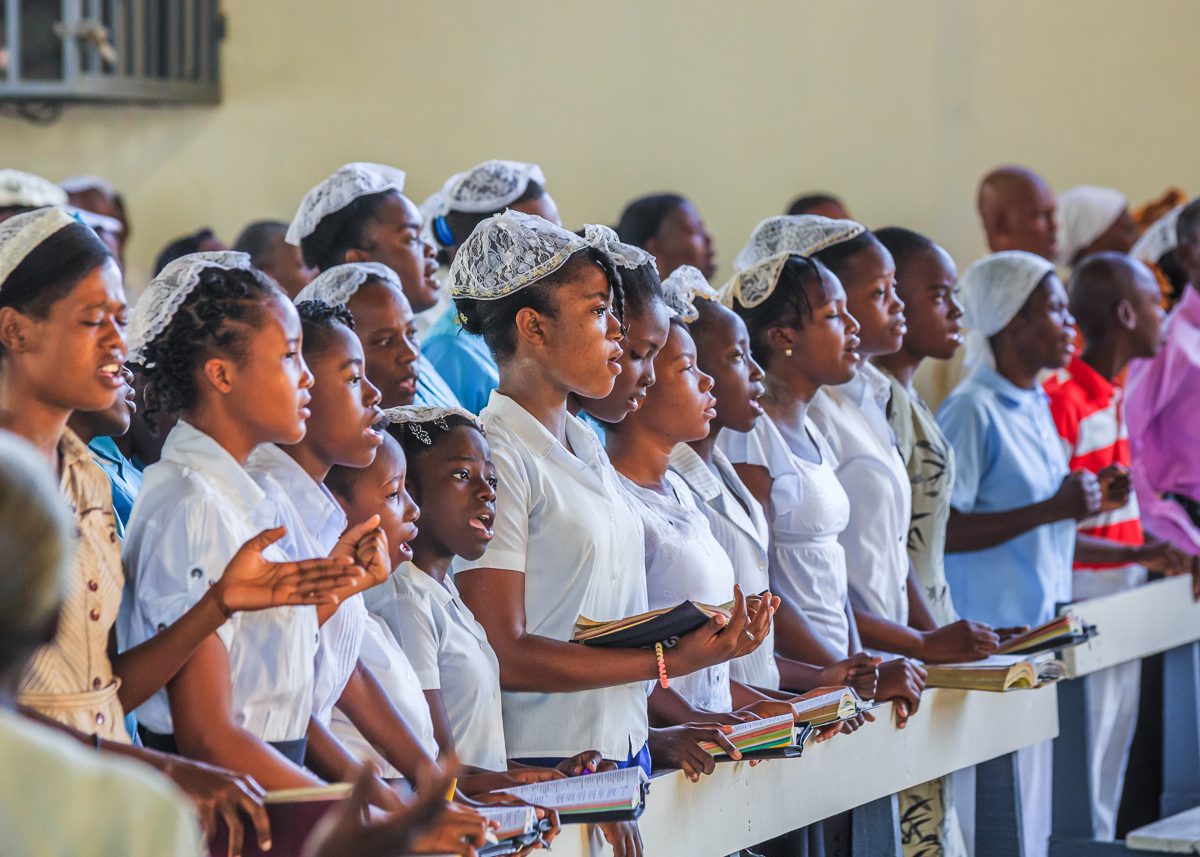What We Do
Haiti Outreach Ministries partners with Mission Communautaire de l’Église Chrétienne des Cités, or MICECC. MICECC leads and operates all programs on the ground in Haiti, ensuring Haitian leadership is at the forefront of our ministry together. HOM provides oversight, fundraising and financial management, and technical assistance. Our work is focused in five key areas.
Our Initiatives
Education
HOM provides primary and secondary education for over 1,800 young people through three primary schools (grades PreK-6) and one secondary school (grades 7- 13). Led and staffed by MICECC, these schools address a critical need in Haiti where free or universal public education is non-existent. Another 125+ students are supported as attend local universities.
The four HOM schools are in high demand as they have gained a stellar reputation for academic excellence and values-based education, offering students the opportunity to develop the essential foundation needed for future success. Students receive something that very few of their parents have – an education – which sets them on a course for a better tomorrow. HOM graduates have gone on to have successful careers in medicine, finance, administration, aviation security, and commerce.
Health Care
Our medical and dental clinic provides essential and life-saving care in an area where very few health care options exist. Staffed by a team of Haitian physicians and nurses, over 12,000 adult and pediatric patients are cared for in a professional and compassionate environment. In addition to acute care, the clinic staff also provides vaccinations, a prenatal care program, and an initiative to track hypertension. A full-time dentist and dental assistant provide invaluable oral hygiene care, services that are in high demand in Haiti as it is estimated that only 300 dentists exist for a population of more than 10 million people.
US volunteer mission teams comprised of medical and dental professionals have a long history of serving in the HOM clinic, augmenting the number of patients who can be seen each day. Volunteer teams have also provided vision care, another service which is extremely difficult to receive in Haiti. Through both on-site Haitian staff and US volunteers, the clinic improves both individual and community health and quality of life through excellence in patient care, vital health education, and robust health promotion services.
Economic Empowerment
To address individuals and families’ desires for improved economic opportunity, HOM operates a vocational school for adult learners. Classes include sewing, tailoring, and information technology, providing hands-on education and learning which can be translated into job and entrepreneurial opportunities in Haiti. Over 500 individuals attend the vocational school annually.
Additionally, HOM is developing the Espwa Campus, a new site dedicated to economic empowerment initiatives. Espwa means “hope” in Haitian Creole, which is precisely what this new campus will provide. The campus will feature an enhanced vocational school with space for more classes and on-site training (including construction trades), opportunities for small business incubation, and an array of other business development activities. The campus will also feature a Bible College, providing training and education for lay leaders who wish to pursue careers in the ministry field.
Clean Water
Haiti’s 2010 massive earthquake devastated water and sanitation systems in and around Port-au-Prince, and Haitians are still struggling today to find clean, safe drinking water. The majority of water sources are contaminated with human waste because of the absence of a sewage sanitation system. To address this need, four of HOM’s campuses features a water treatment facility, providing over 500,000 gallons of pure water annually to the communities served. Water is provided free of charge.
Spiritual Care
Each Sunday, over 3,500 Haitians gather to worship at churches on three of HOM’s campuses. Sunday School is also a vibrant and well-attended weekly activity. The churches are led by three dynamic Haitian pastors and lay leaders who provide spiritual care for the communities. The churches are the meeting place where Haitians come together to worship, experience the presence of God, and speak their hearts to the Lord. Some cry out, some dance, some get on their knees, and some clap their hands. In Haiti, worship is not about going through the motions!
HOM has raised funds to build and maintain these churches, provides pastoral stipends, and sponsors Vacation Bible School, a highlight for the children each summer.
“This country being a better country can help the world become a better place.“
—Loundia Ocean, nurse and HOM graduate
Where We Work
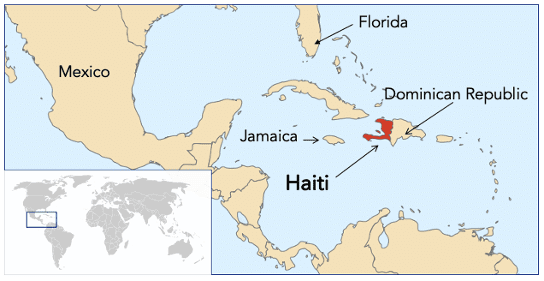
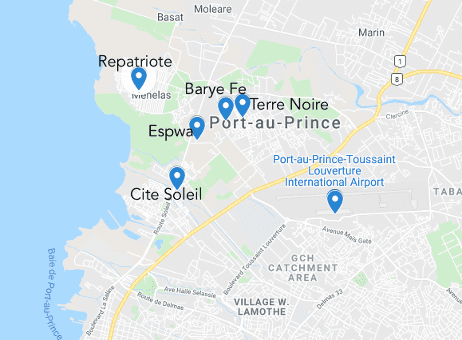
Cité Soleil
Our work began in the Cité Soleil neighborhood of Port-au-Prince. Cité Soleil is an extremely impoverished and densely populated commune that was originally developed as a shanty town and has since grown to over 200,000 residents. The area is generally considered one of the worst slums in the Northern Hemisphere.
Cité Soleil has virtually no sewers and has a poorly maintained open canal system that serves as its sewage system, few formal businesses, sporadic electricity, and minimal community resources. Despite these harsh conditions, its residents demonstrate resiliency. Cité Soleil is home to our first church, a clean water distribution system, and a primary school.
Terre Noire
This community is also known as Blanchard and is located about 2.5 miles north of Cité Soleil. Once a large farming area, Terre Noire is now a community of approximately 120,000 residents. In recent years, the population has grown due to people relocating from Cité Soleil and other areas.
Our Terre Noire campus is home to an ever-growing church, whose structure has been expanded twice in recent years, as well as the health clinic, the vocational school, and clean water distribution system. The campus is also home to an on-site gift shop, which features artfully-designed items created by students in the vocational school.
Repatriote
Formerly known as Menelas, this community is located just three miles from Cité Soleil. When the neighboring Dominican Republic began to expel Haitian refugees in 2004, this area was set aside as a place where individuals could find affordable land for homes.
Our Repatriote campus was completely destroyed in the 2010 earthquake. Reconstruction began later that year and, thanks to generous donations of labor and funds, a new church building was completed in 2014. Today, the Repatriote campus includes a primary school and a clean water distribution system in addition to the church. Also, a community healthcare initiative called “Healthy Moms, Healthy Children” operates out of the Repatriote campus.
Barye Fe
Located very close to Cité Soleil, Barye Fe is home to our secondary school, which opened in September 2015. This school allows students from our three primary schools to continue their education with us, receiving robust academic formation in a Christian-centered environment. The Barye Fe school provides educational access for grades 7 through 13, which comprise the Haitian secondary school system.
Espwa
Our newest campus, the Espwa Campus, is being created as a hub for economic empowerment activities. Espwa means “hope” in Haitian Creole, which is what this new campus will be all about.
Located on five acres of land centrally located to HOM’s existing campuses, the Espwa Campus will address the economic needs of community members through vocational training, small business incubation, and other business development activities. The campus will also feature a Bible College, providing professional training in the ministry field. It is envisioned that HOM’s medical and dental clinic will also eventually move to this campus, providing training opportunities for community health workers.
You can help bring hope
to a place that looks hopeless.

